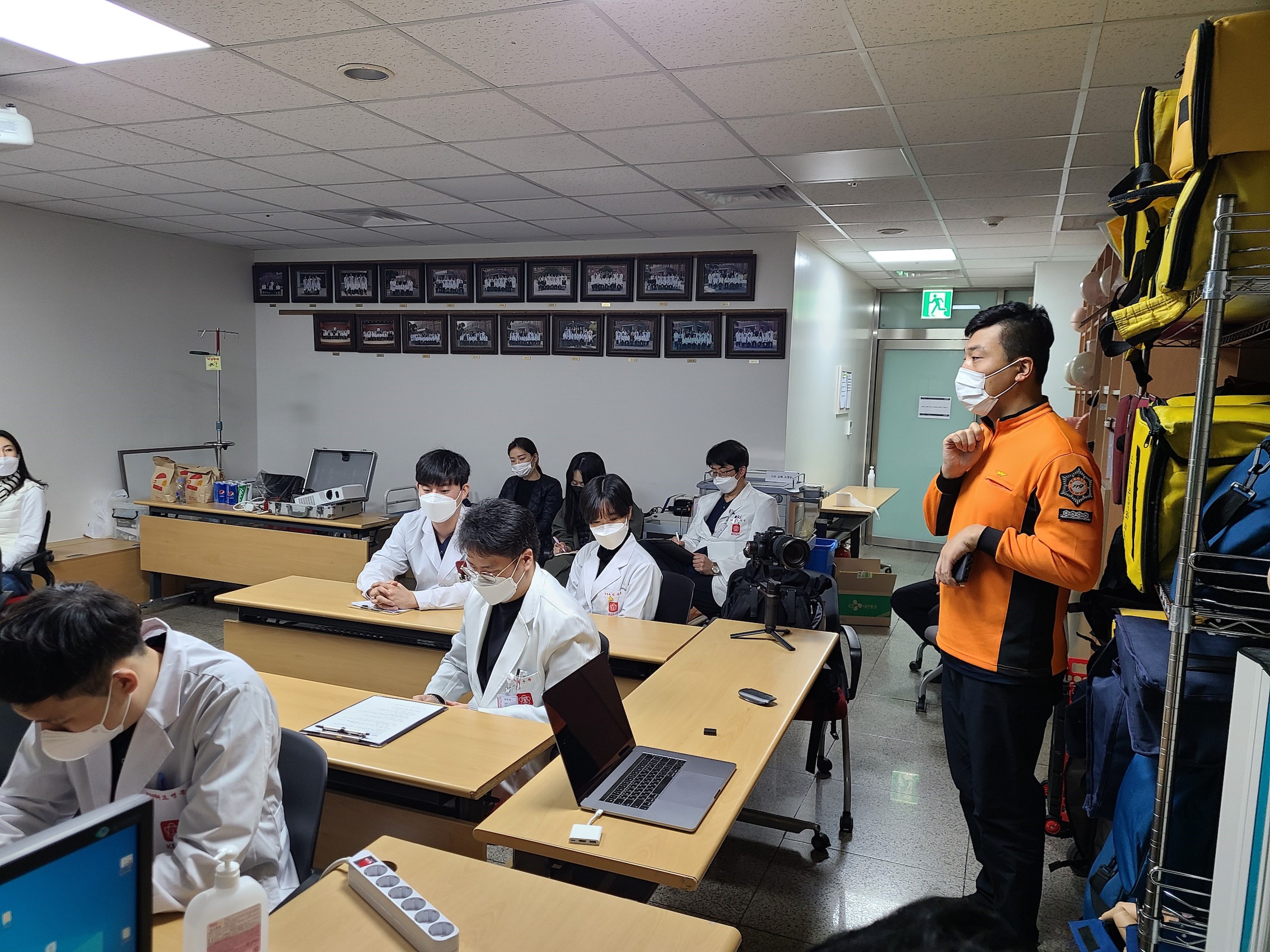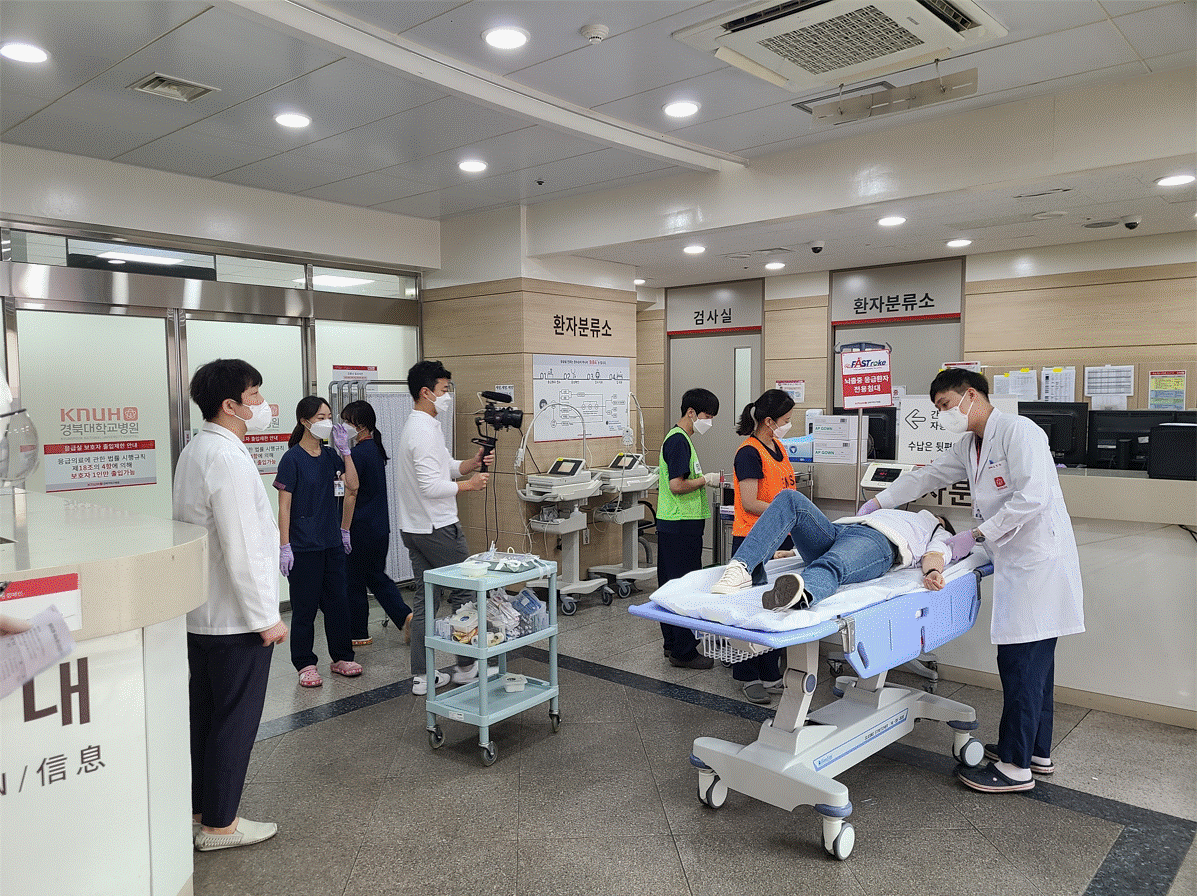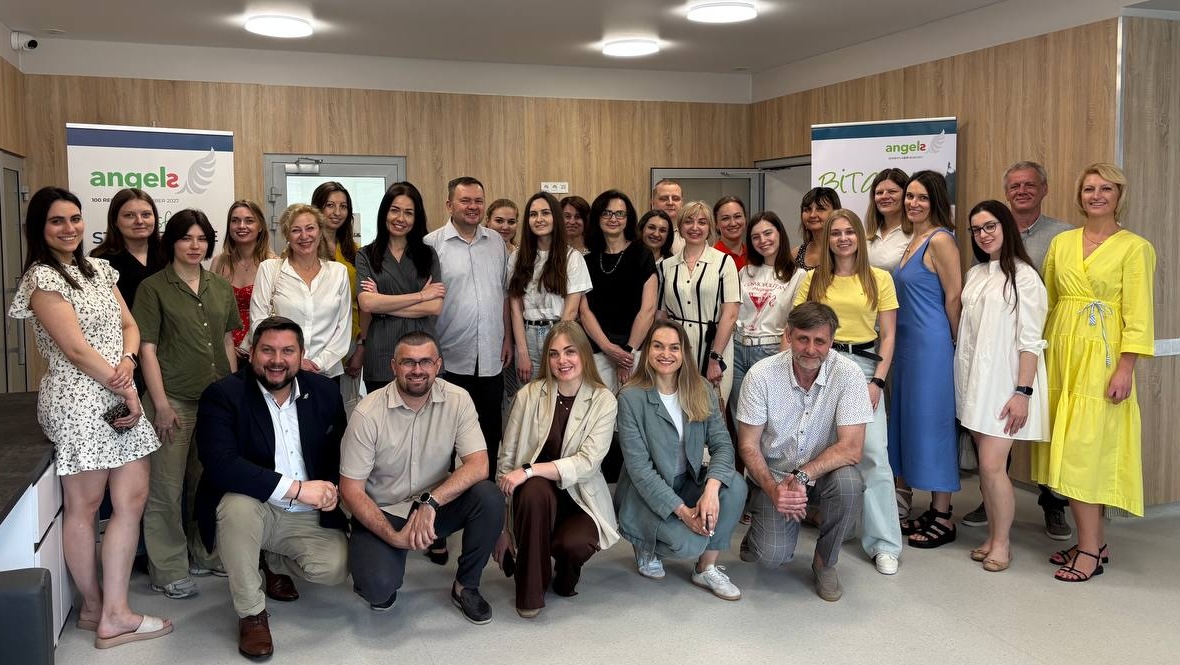Пациенты с инсультом в Южной Корее будут выступать в качестве бенефициаров ориентировой серии семинаров по моделирование суставов для оптимизации догоспитального пути и сокращения задержек лечение, терапия.

В аудитории Национальной университетской больницы Чунгбук в четверг, 18 ноября, женщина падает на бок, где лежит, мягко ругаясь. Подруга спешит в ее сторону. скорая помощь вызывают и через шесть минут приезжают, и пациент прикрепляется к каталке и размещается в месте на расстоянии нескольких метров от места падения.
В настоящее время существует несколько признаков того, что это не является обычной экстренная ситуацией. пациент, ее друг и трио, которые обращаются к ним за помощью, носят поразительную оранжевую и черную униформу южнокорейской пожарной службы, а также около двух десятков других человек в комнате, которые занимаются ведением мобильных столов и делают заметки по мере разворачивания действий.
Учитывая, что все смотрят апельсином, знают внутреннюю часть скорая помощь, как тыльная сторона руки, не нужно пытаться представить, что они бьются вдоль многолюдных улиц Чхонджу, столицы Северного Чунгхунского края ЮгоКореи, или что возвышающаяся под гигантским экраном с крупным изображением гентри КТ-сканера является их местом назначения, отделением экстренная помощи больницы.
Вы наблюдаете только второй совместный семинар по моделирование с участием больница, готовая принимать пациентов с инсультом, и 119 сотрудников пожарной бригады и служба скорой помощи.
При работе в Национальном агентстве по экстренной помощи (National Emergency Management Agency, NEMA) службы скорая помощь в Южной Корее являются профессиональными, хорошо организованными и предоставляются бесплатно. Но, как и в случае служб скорой экстренная в большинстве стран мира, отсутствие координации между скорой и больничной помощью отрицательно влияет на время начало заболевания лечение, терапия и, в конечном итоге, на исходы для пациент в неотложных медицинских ситуациях, таких как инсульт.
Именно по этой причине инициативная Инициатива Angels в Южной Корее и четырех участвующих больницах обратилась в NEMA с просьбой выделить ориентировочную серию совместных семинаров по моделирование для оптимизации догоспитального пути пациентов с инсульт.

Первым шагом всегда является самый сложный из них является Сунсин Парк, менеджер программы Angels для Южной Кореи, для которых серия совместных симуляций С помощью СМП, проведенных в 2021 году, привела к началу расширенной кампании по сокращению времени начало заболевания до поступления на работу и от поступления до начала лечение, терапия.
Обучение моделированию является ценным инструментом для оптимизации маршрута пациента с инсульт. Она сокращает задержки лечение, терапия и повышает эффективность, выявляя препятствия в участвующих больницах, закладывает основу для взаимно согласованного междисциплинарного плана действий по внедрению решений и развивает установку на качество.
Тем не менее, пристальное внимание к больнице и добольничным командам уделяется оптимизации их соответствующих маршрутов, именно на этом этапе находятся взаимоотношения между больницей и С помощью СМП, где можно сэкономить драгоценные минуты, с далекими последствиями для пациентов с инсульт.
Сотрудничество государственного органа в Южной Корее с больницами и Инициатива Angels стало революционным процессом развития и результатом обширного планирования и коммуникации. Первое моделирование исследование суставов было проведено 26 июля в провинции Чангвон Гённам в больнице Yonsei S, одной из клиник, специализирующейся на уход за пациентом с инсультом. Ее успех позволил сделать еще три симуляции: в Национальной университетской больнице Чунгбук в Чунгю в провинции Северный Чунчхун, Национальной университетской больнице Кюнгпоу в городе Тэгу, а также в Национальной университетской больнице Кангуна в провинции Чуньхун в провинции Гангвон.
Для Сунсина и его команды проект показал крутую, но в конечном итоге удовлетворительную кривую обучения. Сценарии были разработаны в Центре моделирования инсульта в Брно в Чешской Республике и адаптированы к местным условиям. Участники были тщательно проинструктированы о целях обучения, назначенных им ролях и информации о пациент. И для реализации корректирующих действий, согласованных во время разбора, моделирование было повторено.
Член команда Инициативы Angels и координатор моделирование, Джуван Ким, записались на обучение видеозаписи и редактированию для создания клипов, которые являются важными помощниками в оценке производительности и проведении обсуждений в команде. Так же хорошо подготовлены клипы, сделанные JuWan, что теперь они станут руководствами по эксплуатации для поддержки обучения в региональной добольничной системе.
моделирование в Национальной университетской больнице Кюнгпока начинается в скорая помощь, где 119 сотрудников быстро выполняют оценку состояния пациент во время получения информации от члена семьи. Больница предварительно уведомлена, и когда скорая помощь достигает места назначения, медсестра и врач скорой помощи встречаются с ними на входе. пациент передают непосредственно в кабинет КТ-визуализации, прежде чем он будет доставлен в отделение неотложной помощи для лечение, терапия.
"Столько дверей", инсульт врач отметил при просмотре видеоматериалов. Это один из основных барьеров, с которыми эта больница будет работать в своем плане действий.
По словам Сунгсина, моделирование показало несколько возможностей для улучшения. "Предварительные уведомления не используются должным образом. Врачи и медсестры повторяют одни и те же неврология обследования. Слишком много времени было уделено получению согласие пациент, и как команда они не делились всей необходимой информацией друг с другом. Процессы варьируются от больницы к больнице, что указывает на необходимость стандартизации протоколов.
Однако во всех четырех видеороликах с моделирование одно — во всех случаях в воздухе ощущается миссия, так как участники дают все свои задания. Дальнейшее обучение может помочь сформировать путь и предложить большему числу пациентов с инсульт второй шанс в жизни, но эмоциональная приверженность команд с обеих сторон этих дверей больницы — это то, что вы не можете симулировать.



